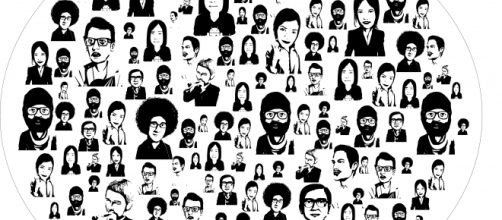Imagine trying to find a needle in an acre of land covered in hay. Now, imagine that you had a million people sitting in front of computers looking for that needle, each with but a tiny fragment to search. If you take that same human data source and plug it into, say, AI security systems for homes or businesses, you increase the computing power of those systems dramatically.
Get by with help from friends
Crowdsourcing is the practice of obtaining information or input into tasks or projects by enlisting the aide of a large numbers of people. Crowdsourcing may be distinguished from outsourcing in that information is acquired and tasks accomplished with the use of an undefined public, as opposed to being contracted to specific persons or groups of people.
There are many advantages to crowdsourcing when applied to a business model.
For the purposes of this article I will focus on its use in accomplishing very tedious "micro tasks"and how this function can be and is applied to the field of artificial intelligence. Artificial intelligence is an area of computer science that deals with giving machines the ability to seem like they have human intelligence.
Brains!
The human brain is far more complex than even the world’s greatest supercomputers. The largest, most powerful supercomputer in the world in 2015 was the Tianhe2 in China. It has a maximum processing speed of 54.902 petaFLOPs. That’s a quadrillion floating point calculations per second. That’s fast, but it is posited that the human brain operates even faster than this at the next highest order, an exaFLOP.
The exaFLOP is equivalent to a billion floating point calculations per second.
Needless to say, human brains are very different from computers. For example, the human brain is both RAM and ROM. It contains both hardware and software. This is not so with the computer. With billions of neurons in a liquid matrix, the human brain is capable of perceiving, interpreting, storing, analyzing, and redistributing information at the same time.
Computers, by design, have some parts for processing and some for memory, and they are separate. This makes the human brain more efficient and its speed much faster.
Human data is so crucial to technology that researchers have compared it to coal in the industrial age. Those that fully harnessed coal during the industrial revolution rose faster than those who did not, leaving them in the dirt.
So it is with human data and technology today.
Human data monopoly
Many with the means have already begun to monopolize human data collection. In tech news, James Vincent from The Verge said that to combat this, Mozilla is asking users to “pool information in order to power open-sourced AI initiatives." The project is being called Common Voice and they are asking users to donate voice samples to build an open-sourced VR system similar to those powering Siri and Alexa.
According to tech news source TechCrunch.com, Crowdflower AI, launched at the TechCrunch50 conference in 2009, uses what founder and CEO Lukas Biewald described as “human in the loop." It provides algorithms to help businesses perform tasks.
It goes on to use human judgement via crowdsourcing in order to “fine tune” the algorithms.
Time to evolve
Now I’m not an expert. I am just speculating here. I’m certain to be corrected if I’m wrong and I welcome it, but this may well be the next stage of AI, or the missing link, as it were. Enough human data is what could be missing for AI to be fully realized. Billions of human beings could ultimately provide that missing aspect necessary for intelligent systems to cross the mythical AI threshold.
So if you find yourself crowdsourcing, and doing some seemingly insignificant task like drawing boxes around boxes within pictures, remember, you could be helping some AI to see or perceive more efficiently.
One day your actions could empower the next stage in evolution, with each human being perhaps representing one neuron -- sitting at computers performing tasks of perception and/or measurement. One could imagine that one day, trillions of terabytes of data sourced from billions of human minds could give “birth” to the next stage of human/machine evolution.


